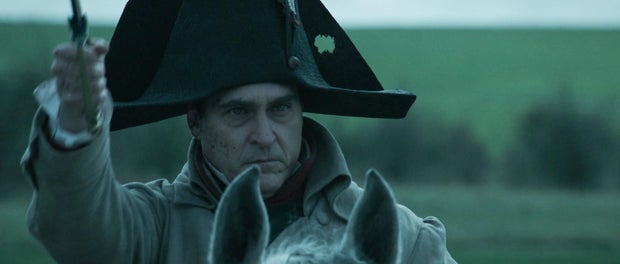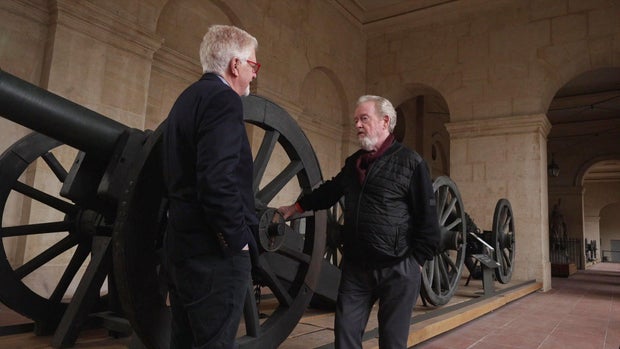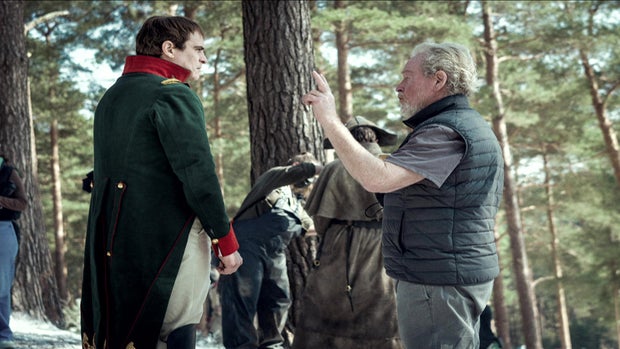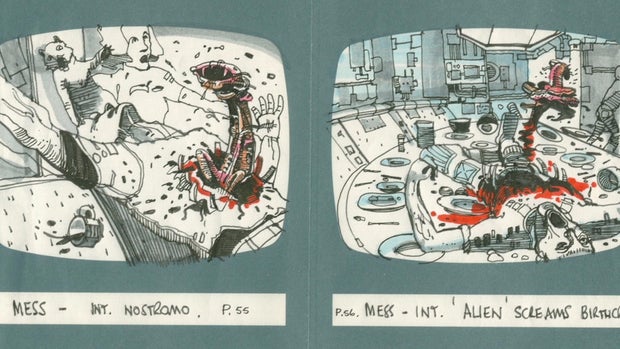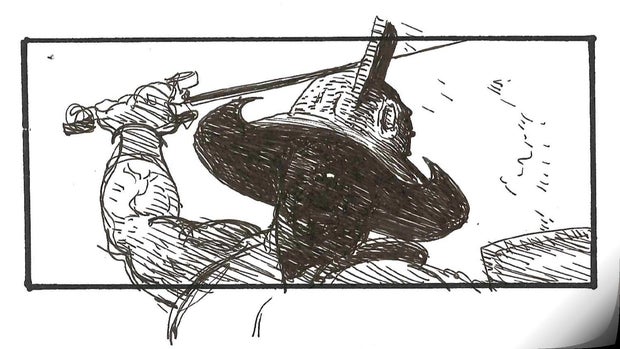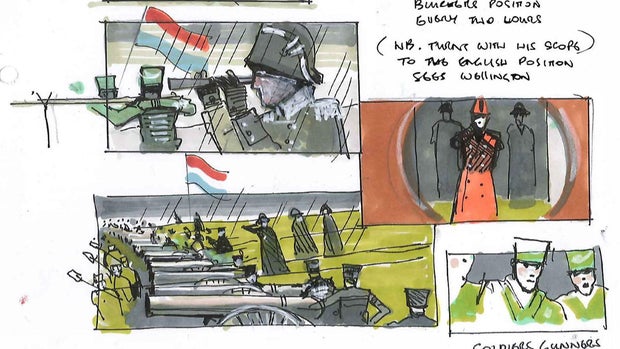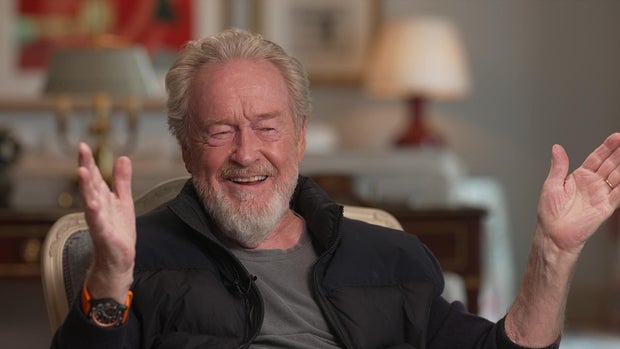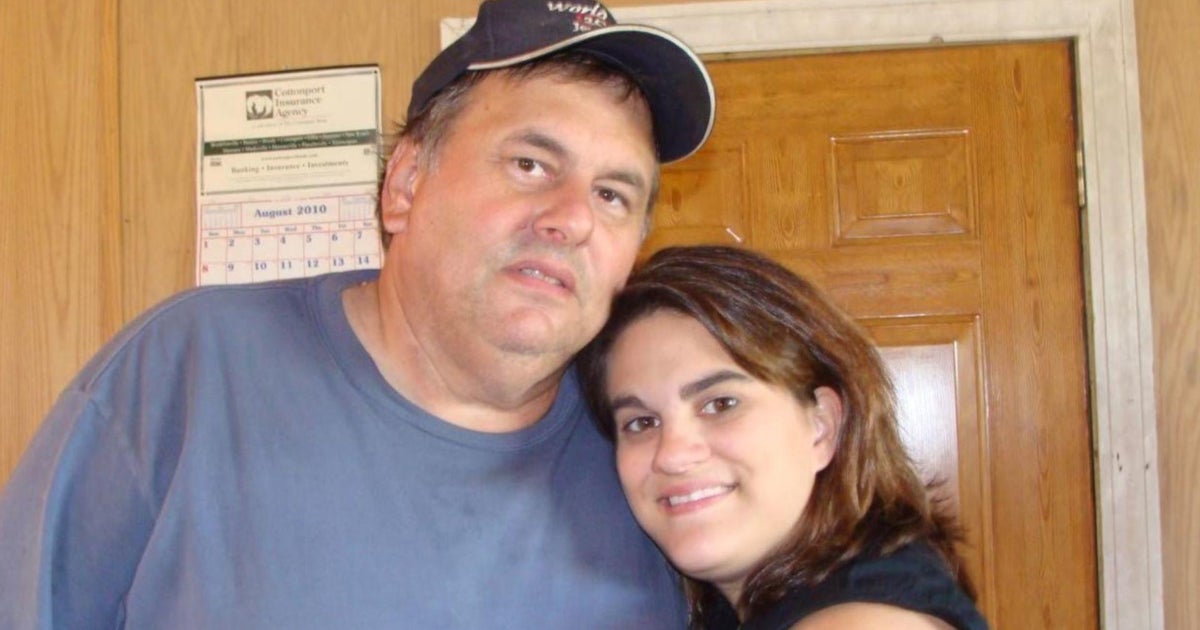Director Ridley Scott on "Napoleon": "It's a character study with violence, with action, with everything you got"
Any casual student of history knows how the story of Napoleon Bonaparte ends: Waterloo, 1815. After more than two decades of dominating European battlefields and European history, Napoleon was finally confronted by an enemy he couldn't out-maneuver, out-gun or out-smart.
Napoleon, that once-obscure outsider from Corsica, the artillery officer who – through ruthlessness and cunning – rose to rule France and to conquer much of Europe, died defeated, in exile and alone. His remains now lie in a grand tomb in Paris, a testament to an emperor who brought glory and then destruction to his own country.
But history, and Hollywood, aren't finished with him yet.
Director Ridley Scott decided his epic take on "Napoleon," played by Joaquin Phoenix, would be less another history lesson, and more a character study.
The question is, where does one start on a story as big as Napoleon? "You've got 10,400 books to start; there's one book written every week since he died," said Scott. "By the time you get to book thousand, dude, I think, it's got to be a lot of speculation."
"So," asked Phillips, "all these historians that have piled on, you're saying Marie Antoinette's hair wasn't that long, et cetera?"
"No, no, no, no," Scott replied. "I'm not going to walk into that deathtrap. No, are you f***ing kidding me? So, sorry ... But I think we then glean the best of the best. I don't think it's a history lesson. I think it's a character study with violence, with action, with everything you got. I think you got everything in that."
The history books are full of Napoleon's triumphs. But there was another aspect of his life that Scott thinks history hasn't stressed enough: Josephine, the aristocratic widow who became Napoleon's obsession, wife and empress: "What was most telling were the letters of Bonaparte to Josephine, because I wanted the centerpiece of the story not to be just about battles, but about this Achilles' heel towards this woman, which is not about sex, it was about social graces. She could lead him into a room where he didn't know how to walk. She could do that."
She may have also been, according to Scott, the only person to tell him to his face what he really was: You are just a brute that is nothing without me.
Phillips said, "You may make him out as a bit of a bumbler in his love life."
"Bumbler on a personal level," Scott said. "But in the military level? No, gifted."
"But do you draw a connection between the two and go back to this idea of the Napoleonic complex that is somehow compensation? The reputation is that he was a little man. and now we refer to little men with grander ambitions as having Napoleonic complexes."
"I think that's a popular concept, but when he's that successful, who gives a s**t? Are you joking?"
Ridley Scott has no complex about his own success, which has made him a kind of bankable Hollywood grandee. He has a list of epic movies that have become classics: "Gladiator," "Alien," "Thelma and Louise," "Black Hawk Down," and "Blade Runner," which bombed at the box office at first, but has since become a cult classic.
Phillips asked, "Has some of the stuff that you've done that you've liked best become some of the stuff that hasn't done quite so well, if we're speaking in pure box office terms?"
"I like everything I've done," Scott replied. "Ev-ery-thing! Everything. And so, I think you're all wrong!"
It's no accident that Sir Ridley (as he now is) has always made movies with powerful and lasting visual imagery. He's a trained artist, who has always sketched out on storyboards exactly how he wants his movies to look. That infamous creature-birth scene in "Alien" looked like this:
Those gladiators were drawn on paper before they hit the big screen.
And that Waterloo battle scene took almost comic book form before the cameras rolled.
The storyboards, he says, are what convinced investors to back his movies. "That's the power of the storyboard," Scott said. "Because [of] the board, the budget doubled. They went, 'Wow!'"
"Because they could see what it was going to look like?"
"Yes. It's interesting, a lot of the business is run by those who can't see it, and those who try to see it."
"Odd in the movie business, I suppose."
"Again and again!" Scott laughed.
Ridley Scott is 85 now. He didn't make his first movie until he was 40, having made TV commercials before that. And he's already got two more projects under way, one of them "Gladiator II."
And, he says, he's going to keep on doing it. "Yes. Why not?"
"What do you got left to prove?" asked Phillips.
"Well, in fact, I love doing it, that's the difference."
"You won a lot of awards. You famously haven't won an Oscar as a director."
"Yeah, but who gives a s**t?" Scott said. "I really don't care. I mean, to me, to be allowed to do it is the most important reward. Yeah, I just love storytelling."
To watch a trailer for "Napoleon" click on the video link below:
For more info:
- "Napoleon" is now playing exclusively in theaters, ahead of its global streaming debut on Apple TV+ | 70mm and IMAX engagements
Story produced by Mikaela Bufano. Editor: David Bhagat.
See also:
- Director Ridley Scott on "The Martian" ("CBS This Morning")
- "Prometheus": Designing the future
- Ridley Scott ("60 Minutes")
for more features.
